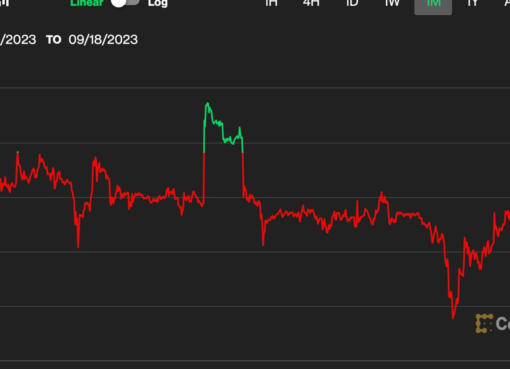After a yearslong saga of accusations, investigations and angry denial, erstwhile business media darling Elizabeth Holmes has reached the final stage of investor grief: conviction. A jury late Monday found that she defrauded investors in Theranos, the health-testing startup she founded and led. Optimists may think of the verdict as a broad sea change in the way the U.S. public views technology founders. But a closer look shows specific lessons that tech founders, and perhaps crypto founders in particular, should take away from Holmes’ grim downfall if they want to avoid a similar fate.
Theranos promised to invent a radical new kind of rapid and portable medical testing equipment, but a jury found that when that dream faltered, Holmes engaged in elaborate deceptions to cover up her failure. Those included running tests on competitors’ machines without disclosure, displaying fake results on tests run during investor visits and making claims about military field tests that never happened. Holmes was acquitted on charges related to defrauding patients, though several received misleading results from Theranos tests, including one woman who was mistakenly told she had a miscarriage.
There are many takeaways from the debacle. But the biggest one has to do with the fine dance that technology founders have to perfect when they’re raising money based on big promises. Some commentators have argued that Holmes’ conviction is a rebuke to the much broader trend of excessive investment hype that has swept the technology sector – arguably for decades, and acutely over the past 10 years or so.
There’s a big difference between promising people the moon, and claiming you’ve already gotten there.
That’s a reasonable takeaway. It’s not hard to imagine a jury six or seven years ago, at the peak if techno-optimism, looking at the same evidence and letting Holmes walk. Holmes’ defense argued in part, and rightly, that making big promises is part of the tech ethos, and failure to fulfill those promises is in itself not a crime. Holmes was ultimately found to have gone well beyond big promises, but the distinction could easily have been lost on jurors.
But the U.S. has moved from an era of techno-optimism to one of tech backlash, substantially triggered by Facebook’s reputed role in the 2016 U.S. presidential election. Since then, we have seen vastly increased public skepticism of tech companies, starting with privacy but extending to many other issues. Public awareness and journalistic focus on the dark side of tech has increased substantially, helping tarnish the halos of entrepreneurs who were for many years regarded, by default, as world-changing saviors. This broader shift can’t be lost on crypto entrepreneurs, most recently in the venomous reaction to Matt Damon’s ad for Crypto.com.
But Holmes shouldn’t be mistaken for a mere avatar of broader frustration with tech-investment hype. She made specific moral and tactical mistakes, and especially if you’re involved in technology startups yourself, it’s important to see exactly where and how she went wrong.
To be cynical about it, Holmes committed the same sins that many mainstream U.S. liberals lay at the feet of former President Donald Trump. While we all know presidents and legislators engage in deception and graft, Trump went about his lying and corruption incorrectly. While George W. Bush incited a whole war to enrich his U.S. oil buddies, Trump collected hotel-room charges from the Secret Service. Bush, despite the larger moral crime, didn’t face real consequences because he followed the tradition of laundering his agenda through the U.S. national security apparatus.
Read more: Marc Hochstein – Theranos Fraud Holds Harsh Lessons for Crypto (From 2018)
Holmes, similarly, tried to work in the same genre of utopian rhetoric as Mark Zuckerberg or Elon Musk, both of whom are successful and at least somewhat respected despite many years of overpromising and under-delivering. But Holmes ultimately crossed the fine but bright line between “fake it ‘til you make it” and just plain “fake it,” winding up engaged in a brand of cheap chicanery more in line with alleged truck maker Nikola’s infamous “let’s just roll this inoperable vehicle down a hill” stunt.
Of course, even the most carefully framed promises can eventually collapse. The current closest thing to Theranos in mainstream investing is Tesla’s goal of creating fully self-driving cars, which CEO Elon Musk has been saying is just around the corner for many, many years. In fact, he started selling the technology more than five years ago, and it still doesn’t exist.
What Elon hasn’t done, though, is fake the performance of the current version of a self-driving car. The Tesla equivalent of what Holmes was convicted of yesterday would have involved putting a journalist or investor in the driver’s seat of a Tesla and claiming it was being driven by artificial intelligence, when the car was instead being controlled by a staffer hiding in the trunk.
None of this, of course, is legal advice. Anyone looking to start a company or project should retain serious legal talent to guide investor communications. But the general principle is clear enough: There’s a big difference between promising people the moon and claiming you’ve already gotten there.




